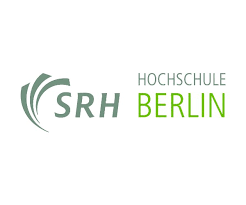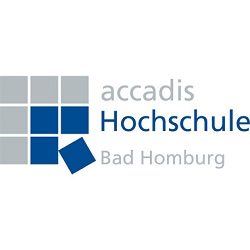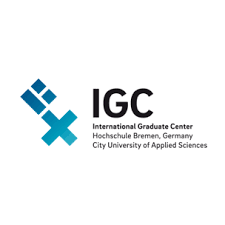Overview
- Germany is a country which is located in the heart of Western Europe with a landscape of forests, mountain ranges, rivers, and the North Sea beaches. It has over 2 millennia of history.
- Berlin is the capital of Germany since the 13th century and home to art and nightlife scenes, the Brandenburg Gate, and many sites relating to world war II.
- Germany is a lovely country that has a long and rich history of ancient times and it is quite a popular tourist attraction as well as a study destination for international students around the world.
- Germany is known for Beer, Football, Bread & Sausages, Palaces & Castles, Cathedrals & Monuments, Festivals & Carnivals, Cars, Free Education and more.
- Germany has a mixed economic system that includes a variety of private freedom, government regulation, and combined with centralized economic planning.
- Germany is a member of the European Union which is known as the EU.
- The western sectors of Germany, which is controlled by France, the United Kingdom, and the United States, were merged on 23 May 1949 to form the Federal Republic of Germany which is known as Bundesrepublik Deutschland (BRD); on 7 October 1949, the Soviet Zone became the German Democratic Republic which is known as Deutsche Demokratische Republik (DDR).
- At Flamingo Educare, we believe in delivering transparent and honest guidance for a life and career in Germany. We not only match you with ideal academic institution for your profile and interest but also for making a life in the country after your education. Equipped with up to date knowledge & partnerships with more than 14 institutions across Germany, we are well placed to make your Canadian dreams come true.
- OFFICIAL NAME: Federal Republic of Germany
- CAPITAL:Berlin
- POPULATION: 83,783,942 (8.3 Crores)
- OFFICIAL LANGUAGE: Standard German
- MONEY:Euro
- AREA:357,386 km²
- GDP:GDP per capita in Germany averaged 33963.83 USD from 1970 until 2019, reaching an all time high of 47628 USD in 2019 and a record low of 19679.50 USD in 1970.
Why Study In Germany?
- The benefits of studying in Germany is Excellent higher education staff members and infrastructure, Internationally recognized degrees, Study programs taught in English, Great job opportunities, A chance to explore all aspects of life in Germany, Staying in Germany after your studies, and many more.
- Germany offers a full authentic package for students, here not only will you be able to get quality education and qualifications which will help you excel in the global job market, but you will also have the opportunity to enjoy the beauty of Germany to the fullest.
- German universities offer you excellent teaching and research in your favorite subjects, and also ranking among the best in the world. In Germany, you will earn an internationally renowned degree, which is giving you excellent prospects in the global labor market.
- Studying abroad in Germany is one of the most cheapest and popular ways to further your education and explore new cultures and explore the beauty of the place.
- Germany has everything a student can wish for such as world-class education, multi-cultural environments, affordable lifestyle, picturesque landscapes, great food, of course, and amazing nightlife
- Germany has very strict standards for accrediting its educational providers, for their colleges and universities. The fact that higher education in Germany at public universities is tuition-free is a purely political decision by the German government. A degree from a German university will be respected around the world and open many doors for your career choices, in the world.
Do you have questions regarding Study In Germany ?
Top Universities
 Established in : 2017 Approx Fees : |
 Established in : 2005 Approx Fees : |
 Established in : 2014 Approx Fees : |
 Established in : 2002 Approx Fees : |
 Established in : 1990 Approx Fees : |
 Established in : 1993 Approx Fees : |
 Established in : 1990 Approx Fees : |
 Established in : 1990 Approx Fees : |
 Established in : 1982 Approx Fees : |
 Established in : 2001 Approx Fees : 28,650 EU |
Top Courses In The Germany
Popular Courses To Study In Germany
- Medicine and Dentistry: Doctors and dentists are important professionals throughout the whole world. Health is seen as one of the topmost important factors of having high wellbeing in any nation. Because of that, medical professions are the top paid degrees in Germany.
- Law: Lawyers are also highly valuable. Having a good justice system makes a nation seem more developed and fair to its people. Whenever we have any legal problems, we are faced with the tough task of finding a good lawyer.
- Industrial Engineering: The 3rd highest paying degree is Industrial Engineering. This is a branch of engineering which works towards making organizations and companies more efficient. It can work with both services and products.
- Engineering: The standard degree of Engineering comprises general knowledge from all branches and aspects of the profession. Engineering degrees are some of the toughest due to their scientific nature. Engineers require being highly precise as small errors could lead to big consequences. That is why they get compensated well too.
- Mathematics and Computer Science: The science of mathematics has always been important. Mathematicians deal with the complexities of all that requires calculations. They come up with formulas and models which solve challenging and difficult problems.
- Natural Sciences: Physics, biology and chemistry are also highly precise sciences. They assist people in making accurate materials, knowing the laws of the natural world, and discovering other organisms. Throughout time these 3 sciences have made important and interesting findings about the world we live in.
- Business and Economics: Having the knowledge to handle a company and arrange its strategy makes the difference between failure and success. All organizations and companies, whether private or public, require people who know the basics and the intricacies of business and economics.
- Architecture: Architects design the structures and buildings we live and work in. They design our space and the way we use it. Their ability does not lie in only coming up with buildings that look good, but in also having them be strong and not prone to collapsing.
Do you have questions regarding Study In Germany ?
Cost Of Study
How Much Is The Cost Of Education In Germany?
Tuition fees for “non-consecutive” master’s degrees, for those who have gained their bachelor’s degree elsewhere in the world, will vary between universities and maybe around €20,000 per year at public institutions and up to €30,000 per year at private German universities.
A list of average tuition fees at the top-ranked German universities, as per below:
- The Ludwig Maximilian University of Munich – The average tuition fees is 258 EUR per year
- Heidelberg University – The average tuition fees 20,000 EUR per year
- Technical University of Munich – The average tuition fees 258 EUR per year
- The Humboldt University of Berlin – has no tuition fees
Where Can The Student Stay? And Whats Can Be The Accommodation Cost?
Overall, one of the biggest financial issues students tend to face in Germany is rent, however, many students decide to live in shared accommodation, student halls, or find a flat in the outskirts, since rent tends to be more costly in the city centers.
Living Costs In Germany
Not only you can study for free in Germany, but it is also a pretty affordable country. The average costs of living for international students in Germany range between 700 – 1,000 EUR per month, which include study and accommodation.
- Larger cities of Germany: Berlin, Frankfurt or Dusseldorf – total living costs of 900 – 1,500 EUR per month
- Smaller cities of Germany: Freiburg, Leipzig or Hannover – you will need 750 – 1,100 EUR per month
What Is The Student Accommodation Cost ?
When it comes to living in Germany, as a student, housing is the highest monthly expense. You will have cheaper accommodation options for international students are residence halls or sharing a privately rented apartment. You can also rent a one-room apartment which is also called a studio.
- Living alone in a studio is approximately 390 EUR per month
- Sharing a privately rented flat is approximately 365 EUR per month
- Living in a student residence is approximately 250 EUR per month
In Germany, the most popular housing for International students is rooms in student residence halls. According to the DAAD, over 40% of international students live in a student residence, as it’s a cheaper resident. The second most popular option is sharing a flat with students, with 30% of students choosing this type of accommodation to stay in Germany.
Monthly utility expenses such as electricity, gas, heating, and internet can add between 100 – 200 EUR to your overall living costs.
Do you have questions regarding Study In Germany ?
Career
Economy
- Germany’s economy is a highly developed social market economy in European countries. Germany has the largest national economy in Europe, as well as the fourth-largest by nominal GDP in the world, and fifth by GDP in the EU.
- In the year 2017, according to the IMF, the country accounted for 28% of the euro area economy.
- Germany’s solid economy is the world’s fourth-largest and Europe’s largest economy which is based on exports of high-quality manufactured goods.
- Germany has come under fire from other European countries as well as the United States for its low level of defense spending and construction of a second natural gas pipeline which is a link with Russia.
- The important role of industry, in Germany the share of industry in gross value added is 22.9 %, making it the highest among the G7 countries.
- In Germany, the strongest sectors are the electrical industry, vehicle construction, engineering, and chemical industry.
- Germany’s economic freedom score is 73.5, making its economy the 27th freest economy in the Index of the year 2020.
- Its overall score is unchanged from the year 2019’s Index, with an uptick in the government integrity score offset by a drop in judicial effectiveness.
- Germany’s economy is ranked 14th among 45 countries in the Europe region, and its overall score is well above the regional and world averages.
How Is The Job Market In The Germany?
In Germany, the job market includes many things like direct appointments, as well as graduate schemes, apprenticeships and which include on the job training. This kind of arrangement is ordinary in German organizations, which seek to ensure that all staff has the needed skills. Organization also tends to appreciate employees who are familiar with Germany’s business culture, with its stress on formality, respect for rules and punctuality.
Salary wise, through part-time jobs pupils get to earn around 450 per month, with a salary ranging from 5 to 15 EUR/hrs.
The nation boasts of having one of the lowest unemployment rates in Europe. As of May 2020, the unemployment rate for Germany was reported at 3.9%. Some of the biggest employers in Germany include Volkswagen, Allianz, Daimler, BMW, Siemens, Bosch, and Deutsche Telekom.
Alongside the big names of the business, about 90% of the business in Germany is SMEs (Small and Medium-sized Enterprises). These account for 2 to 3rd of all the jobs in the nation. the job market in Germany still welcomes skilled international workers with language proficiency to be employed at the highest of levels.
What Are The Average Salaries In The Germany?
As per 2020 salary report record average salaries by organization for those working in managerial or professional profession in Germany:
As per the Federal Statistical Office of Germany, in 2019 the average gross annual salary was euros 47.928 , or euros 3.994 per month.
|
Doctor |
92.316 euros |
| Finance |
76.354 euros |
|
Law |
70.042 euros |
| Banking |
65.006 euros |
|
Engineering |
64.541 euros |
| Consulting |
63.893 euros |
|
Sales |
63.837 euros |
| IT |
60.545 euros |
|
Marketing |
60.424 euros |
What Are The Top Trending Jobs Or Careers In Germany?
International professionals have great prospects in jobs that are specifically in demand.
Skilled job-seekers from abroad have very good opportunities in certain field. For instance, there are many jobs for engineers, nurses, doctors as well as in the manual trades.
- Software developers, architects, programmers
- Electronics engineers, electricians, electrical fitters
- Nurses
- IT consultants, IT analysts
- Economists, business management experts
- Customer advisors, account managers
- Production assistants
- Sales managers, product managers
- Architects, civil engineers
- Sales representatives/assistants
Do you have questions regarding Study In Germany ?
Immigration & Settlement
How Many Years Of Post Study Work Can I Do In The Germany?
- In Germany, Indians who have gathered 3-5 years of work experience in their own home country and have B1 German language proficiency can apply for jobs.
- They can also apply for a job seeker visa to come to Germany and they can stay for 6 months in Germany on this visa and look out for jobs.
- Students who are from non-EU countries and who wish to work in Germany after graduating can extend their residence permit for up to 18 months to find work relating to their studies, once thier study over. You will need a Passport, to apply for the extended residence permit.
- Prospective student visas are valid for 3 months and they can be extended by 6 months if you are accepted to a higher education institution. While the time if you enroll in a foundation course or a preparatory German language course within this period.
- Students can hold a mini job and can earn up to 450 EUR per month without having to pay taxes. While studying if you regularly earn more than 450 EUR, you will need to pay tax and for that, you need a tax number, and a certain amount will be taken from your salaries every month. Students can get this money back at the end of the year by submitting a tax return to the government.
What Is The Possibility & Process Of PR
As per German rules, You can apply for a permanent residence permit if you have been in Germany for five years or more than that with a valid visa. If you have an EU Blue Card, you can apply for a PR visa after working in the country for 21 to 33 months in any city. If you are a self-employed person with a temporary residence permit, you can apply for a PR after the completion of three years with a valid visa.
In Germany, A German Settlement Permit is a permanent residence for international students or employees who have lawfully spend some years. In Germany, you can stay as long as you want, with PR. You can work, study, and even bring your family members to Germany on a valid PR visa.
In Germany, a PR visa holder gets the benefit of being able to study any of the courses of his choice in a German university for which he can get a scholarship or financial aid if required. If you have a PR visa, you will get the freedom of movement within the EU countries.
A PR in Germany are not complicated, the legal requirements, eligibility criteria, and supporting documents to apply for a PR.
Can I Work While Studying In The Germany?
While the study in Germany, you can work up to 20 hours per week. If you exceed the working hours then you will be required to pay into the German social security system, and there could be a negative impact on your studies. Non-EU/EEA students are also able to work in Germany alongside their studies, for 120 full days or they can work for 240 half days per year.
How Can I Become A Permanent Resident In The Germany?
In Germany, in some instances, it is possible to gain a Permanent Residence Permit in just two years. This applies to those who have graduated from a German university and then lived and worked in Germany for the next two years. Individuals married to German citizens may be able to apply for a Permanent Residence Permit after three years of staying in Germany.
How To Become A Citizen Of The Germany?
- The requirements that you require to fulfill in order to qualify for naturalization are as follows:
- You must have lived in Germany on a residence permit for at least eight years,
- You must have lived in Germany on a residence permit for seven years and attended an integration course (this becomes six years on special integration circumstances)
- You must prove German language proficiency of at least B1
- You must be financially capable to support yourself and your family without any help from the state
- You must be a law abiding citizen with no criminal report or record
- You must pass a citizenship test
- You must renounce any previous citizenships
How Long Does It Take To Become A Permanent Resident In Germany?
In some instances, it is possible to gain a Permanent Residence Permit in just two years, in Germany. Get a PR visa is easy for those who have graduated from a German university and then lived and worked in Germany for the next two years. Individuals married to German citizens may be able to apply for a Permanent Residence Permit after three years of staying in Germany.
Do you have questions regarding Study In Germany ?
Education System
What Are The Various Intakes Of Admission In The Germany?
In Germany, there are only two intakes in German university in the year:
- Summer intake which is for the summer semester running from March to August or April to September; deadlines for students usually fall before January 15.
- Winter intake which is for the winter semester running September to February or October to March; deadlines for students usually fall before July 15.
Education System
In Germany, education is primarily the responsibility of individual German states, each state has different rules, and the federal government playing a minor role in the education system. The system varies throughout Germany because each state decides its own educational policies for their area. The degree courses are as per below:
- Bachelors Degree
- Masters Degree
- Doctorate Degree
Doctoral degrees are available for many different fields including Geography, Social science, International development studies, molecular science, systems neuroscience & mathematical science.
What is a Pre-Masters?
In Germany, the Pre-Master is a compact preparatory business program that allows, students, to qualify for the Master’s programs offered by Munich Business School, Munich. The pre-master program will also be offered as an online course in the summer of 2020.
In Germany, a graduate preparation program which is also known as Pre-Master’s pathway can help you to prepare for your future and gain entry to a master’s degree. Pre-master courses provide routes to excellent universities in the UK and USA that you might not otherwise qualify for entry to.
The Pre-Master program has been designed for the local and international students who are not qualified for direct entry to the postgraduate or Master’s programs at Wittenborg University, in terms of academic qualifications, or in terms of English language proficiency, and even in work experience.
The aim of the Pre-Master program is to prepare students for entry onto the Master of Science programs Wittenborg offers or in the master programs of thier choice. With the main elements of business and management covered within the Pre-Master program, and students will enter the postgraduate program of their choice with well-preparations of the program of their choice.
What Entrance Exams Are Required To Study In The Germany?
In Germany, most of the universities use the German language for the instructions. If you are a non-native English speaker, you may be required to provide proof of your English-language proficiency, you need to clear tests of IELTS or with a TOEFL result.
International English Language Testing System (IELTS)
If you are looking to study in the Germany first thing is you need to clear the IELTS which is a English language test. There is a certain requirement of bands in IELTS for students who want to apply student visa.
Test of English as a Foreign Language (TOEFL)
Widely acknowledged English language test, the TOEFL test is the key to study at some universities abroad. It is conducted mostly as an Internet-based test (iBT). The test comprises different sections to assess your reading, speaking, listening and writing skills in English.
Graduate Management Admission Test (GMAT)
Over 6000 Management and business schools approve the Graduate Management Admission Test (GMAT) scores globally. The GMAT test continues to be the primary goal of many MBA aspirants. The GMAT comprises patterns like analytical writing assessment, quantitative reasoning, integrated reasoning and verbal reasoning. Learn how you should prepare for your GMAT in 6 months time.
Graduate Record Examinations (GRE)
Acknowledged by thousands of business and graduate schools, the Graduate Record Examinations (GRE) is an entrance exam, which is mandatory for admission at many universities, particularly in the field of engineering. In fact many German varsities encourage GRE scores for the admission process. It comprises patterns like verbal reasoning, quantitative reasoning and analytical writing
Do you have questions regarding Study In Germany ?
Application Process & General Requirement
Overview
In Germany, a German student applicant visa is the visa to apply for if you are planning to go to Germany for your study, to apply for university admission. This visa is initially issued for only three months but can be extended for another six months upon your arrival in Germany if necessary.
When To Apply For Student Visa For Germany?
For a German visa, you will get interview appointments, and wait times vary by season, location, and visa category, so you should apply for your visa early. For the USA, An F1 student visa can be issued up to 120 days in advance of your course of studies starting date. You will only be able to enter the US with an F1 visa prior to the 30 days of your course start date.
How Long You Can Stay In Student Visa In Germany?
A German student applicant visa is the visa to apply for if you are planning to go to Germany for your university admission in person. This visa is initially issued for three months only but the visa can be extended for another six months upon your arrival in Germany if necessary.
It is possible to extend the validity of visas only in exceptional cases, such as a natural disaster, or any natural incidence. Changes in visa must be done at the foreigners’ office covering your area of residence.
You May Be Able To Stay Longer In Germany:
Prospective student visas are valid for three months only and the visa can be extended by six months if you are accepted to a higher education institution or you have enrolled in a foundation course or a preparatory German language course within this period. Student visas are usually valid for three months only in Germany.
When Can You Travel To Germany On Student Visa?
You can arrive in Germany before your course starts.
Especially for international students in Germany, about to come to students can only be granted an entry visa for Germany if they can prove.
How Much Money You Need To Travel To Germany?
- You must have enough money to pay for your course and support yourself in Germany.
- How much money you need totally depends on your circumstances and for what you are applying.
What Is The Germany Student Visa Requirements?
- Completed application form.
- Valid passport.
- Two photographs.
- Letter which showing you have been accepted by a German university.
- Transcript of the academic record.
- Certificate of German language proficiency is required or proof that you intend on attending a language course in Germany.
Do you have questions regarding Study In Germany ?
General Information
Popular Cities To Study In Germany:
-
Munich
Munich is the third-largest city in Germany, after Berlin and Hamburg, and a marvelous international student hub. It is also a major center for technology, art, innovation, business, and tourism among others. Oktoberfest is one of the most attractive festivities to happen to Munich annually, it starts from late September and ended on the first of October every year but it is not the only attraction. In Munich, International students can enjoy numerous outdoor and indoor activities such as hiking, paragliding, snowboarding, skiing, swimming, sailing, and diving among others. It is truly a land of opportunities.
-
Berlin
International students are also attracted to the German capital, which is Berlin. Berlin is a city, where people and International students can enjoy many cultural events and they can enjoy and learn more about Berlin’s culture and history through a wide variety of war museums and cinema houses, and from other education events. Berlin has five major public universities and around 20 private, professional and technical, institutions are there. Another thing that international students love to do in Berlin is the fact that the student population is quite significant, meaning friendships can easily be created between, both, locals and internationals. Berlin is a city where everyone can enjoy the vibrant nightlife, and the city has lovely nature, and flowing creativity, this city surely is one of a kind.
-
Stuttgart
Stuttgart is one of the strongest industrial regions, and also the city offers students an ideal environment to study and advance their careers. If you have heard anything related to Stuttgart, it might have been something related to the two global companies whose headquarters are located in this city, one is Porsche and the other one is Daimler. But you have also probably heard about its world-class universities and colleges, which offer the practical and theoretical skills every student needs to succeed.
-
Frankfurt
In Germany, Frankfurt is a great place and choice of study destination, especially for those who all are interested in studying business and finance. Frankfurt has a large concentration of business and tourism hubs which contribute to the national economy as well and also makes it easier for local and international students to gain the experience and knowledge they need in the world of business for their future. Frankfurt is significantly known for its numerous skyscrapers and unique buildings which make it look like a futuristic city in all its glory, all around the world. While studying in Frankfurt, you get a chance to meet new people, and it is also one of the largest bonuses that come with choosing this study destination.
-
Dresden
Dresden is home to world-class and excellent universities that offer the perfect conditions to learn and advance. At the Dresden universities, students get to earn their knowledge and practical skills, from the best professors. Through numerous internships, students get to put their skills to good use in the wide range of modern technology companies which is located in Dresden. In Dresden students easily get accommodation and is relatively affordable and students have different opportunities to find student housing through student organizations like Studentenwerk Dresden.
-
Aachen
Aachen is a cultural city thriving in its innovation and technology. Aachen is a small city, which is located near Germany’s borders with Belgium and the Netherlands. Aachen is basically a magnet for all the international students, and the city is with numerous attractions and interesting landmarks, and good universities to study. For example, Aachen’s cathedral was the first German landmark to be recognized as a UNESCO World Heritage Site in the year 1978.
Aachen universities are recognized for their high academic quality and outstanding education, for local and international students. This city is mainly focused on science and technology, so it’s an important center for students who are interested in the same field. One of the most renowned universities is located here such as The RWTH Aachen University.
-
Hamburg
In Hamburg, you can find numerous renowned universities which attract thousands of students from all over the world. Basically, whatever your field of interest is, be it social sciences, art, music, engineering, or design, you can find a degree programme in Hamburg. Universities offer state-of-the-art equipment and facilities and students get their skills from outstanding professors and instructors. Although most courses in Hamburg are in German, there are numerous in English as well.
-
Cologne
Cologne is the largest city in the western state of North Rhine-Westphalia and it’s also the fourth largest in Germany, Cologne is a famous destination for international students, and for tourism. Cologne city is a vibrant and lively city which also has a lovely atmosphere as well and it’s also known for its numerous cultural, musical, and medieval trends. Cologne is a historic city, it has lots of attractive views to attract tourists also that is particularly attractive to international students because it has excellent universities and colleges, and affordable living costs, and an outstanding quality of life.
-
Leipzig
Leipzig is a wonderful destination for international students to live and study. This city has evolved from a small town to a business and cultural hub known for its picturesque landscapes and its influence on music and art. Life is very active in Leipzig and there is always something students can do to have fun and relax. Its rich culture is what attracts many tourists, but its professionalism and opportunities are what attract international students worldwide.
Climate
In most of Germany, the area has a temperate seasonal climate which is moderated by the North Atlantic Drift. Overall, Germany is a year-round destination with warm summers and relatively mild winters – a prolonged period of frost is rare.
Germany has a temperate climate throughout the country with warm summers with warm air and cold winters with cold air, however, long periods of frost or snow are rare. In Germany, rain falls throughout the year. Extremes temperatures sometimes reach -10° C (5°F) in winter months and 35 ° C (95° F) in summer months.
Do you have questions regarding Study In Germany ?
